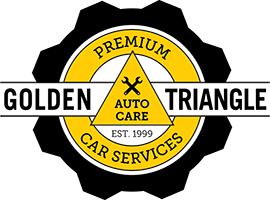
Call Us Now
303-573-1335

Change your oil every 3,000 – 5,000 miles. Change your transmission fluid every 24,000; and the same for your fuel filter. There are many things to check and change throughout the life of your vehicle, and when it comes to brakes, many drivers breath a little sigh of relief because the standard recommendation is for a check only once every 35,000 miles.
That number can be a little misleading, and many mechanics like to perform a quick check of the brake system once or twice per year. Perhaps more than any other component of your vehicle’s maintenance, brake wear is the great variable. Different driving styles translate to different rates of brake wear, even over the same number of miles. If you are a safe, defensive driver who always follows the speed limit, you may buy yourself some extra time before needing any actual brake service. Today you can take some of that extra time to ponder the following points regarding brakes:
- Pay attention to feel and sound. Squeaking or grinding during braking are the classic warning sounds that signal a possible need for brake service, but any consistent new sound that occurs during braking should be investigated. A squishy feel to the brake pedal, as well as a softer OR harder feel are other signs pointing to a brake check. Remember, there’s more to brake service than just replacing the pads. Problems can also be caused by a faulty master cylinder, leaks in the brake system, or improper adjustments.
- Check them yourself! You’ll get a good idea of how hard you are on your brakes with your first mechanic brake check. If you tend to wear your brakes faster than normal, get in the habit of performing a quick check yourself. You should be able to see your brake pads through the rim of your wheel. When the pads are less than ¼ inch thick, it’s time to replace them. Prompt replacement of the pads can help you avoid more costly repairs down the road, including resurfacing or replacement of the brake rotors.
- Bleeding and Flushing. While a full brake system check is recommended every 35,000 miles, many mechanics recommend flushing a car’s overall hydraulic system every 24,000 miles or 2 years. Flushing helps remove sludge, contaminants and water that can accumulate and shorten the life of brake system components. Likewise, air accumulation in the hydraulic system can be problematic. This typically occurs after replacement of a component/s in the brake system. Bleeding is a process that forces air out of the system, and this is recommended after replacement of a component.
